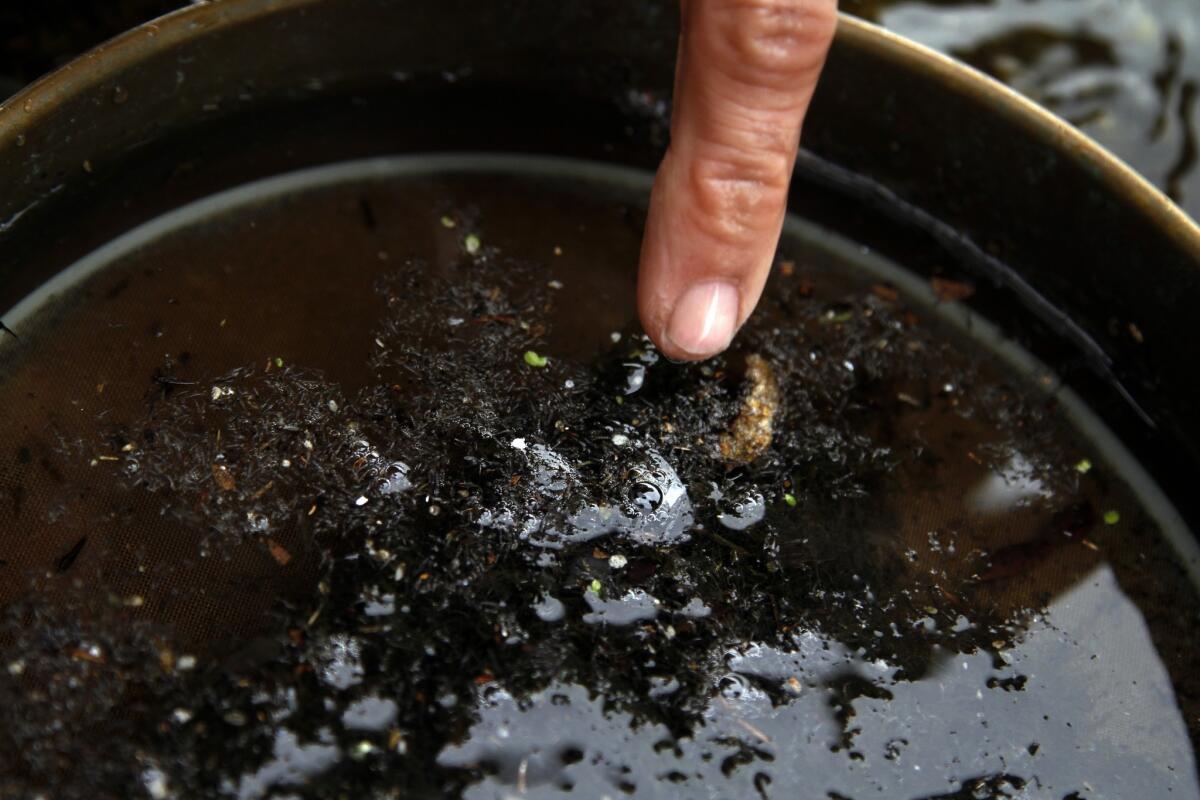Microbeads ban sought in New York over environmental concerns

New York aims to be the first state to ban the use of plastic microbeads widely used in cosmetics, such as facial scrubs, after the tiny exfoliating beads have been found in alarming levels in the state’s lakes and other waters.
Scientists warn that the microbeads, which are not biodegrable, are too small to be removed by the water treatment process and end up in lakes, rivers and oceans. They are then ingested by fish and other animals, potentially ending up in the food chain.
Legislation to be introduced Tuesday by New York Assemblyman Robert K. Sweeney (D-Suffolk), would prohibit the production, distribution and sales in the state of any beauty product containing plastic particles less than 5 millimeters in size.
Sweeney is introducing the legislation on behalf of New York Atty. Gen. Eric T. Scheiderman. In a statement, Schneiderman said the state was committed to protecting and restoring New York’s waters.
“New York’s environmental leadership continues today with the introduction of common-sense legislation that will stop the flow of plastic from ill-designed beauty products into our vital waters, preserving our natural heritage for future generations,” he said.
Scientists in 2012 found high levels of microbeads in the Great Lakes, which the highest concentrations in the New York waters of Lake Erie. Half of all plastics collected on the surface of Lake Erie were the perfectly spherical, multicolored beads identical to the microbeads used in beauty products.
“When people learn more about this issue, they will be unwilling to sacrifice water quality just to continue to use products with plastic microbeads,” Sweeney said. “I never met anyone who has wanted plastic on their face or in their fish.”
Schneiderman’s office said that three cosmetics manufacturers, including Proctor and Gamble and Colgate-Palmolive, have already made commitments to phase out the use of microbeads.
More to Read
Inside the business of entertainment
The Wide Shot brings you news, analysis and insights on everything from streaming wars to production — and what it all means for the future.
You may occasionally receive promotional content from the Los Angeles Times.











